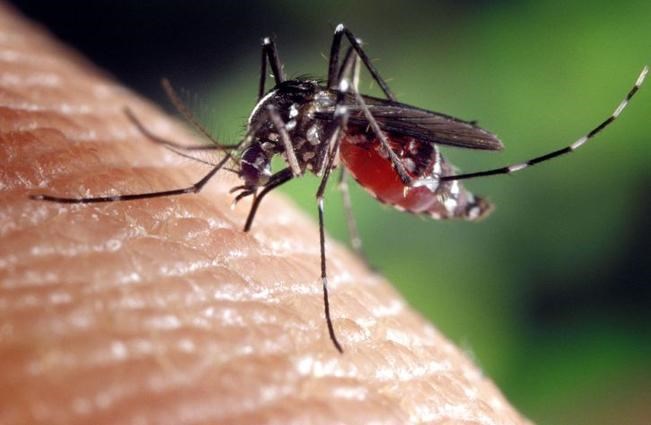In 2017, there were 21 cases of West Nile virus in NYC, two of which ended fatally. Tick-borne illnesses have also been on the rise: There were 381 reported cases in Brooklyn alone.

It's summer — and it's mosquito and tick season. And just in time, the health department issued a reminder about the importance of protecting yourself from mosquito- and tick-borne illnesses.
"The summer is a time that New Yorkers explore the outdoors, including the city's great parks and beaches," said Health Commissioner Dr. Mary T. Bassett. "The health department encourages residents to enjoy all of the outdoor facilities and activities the city has to offer and to take necessary precautions to protect themselves from mosquito- and tick-borne diseases."
According to the health department, in 2017 there were 21 cases of West Nile virus, two of which ended fatally. West Nile virus is a disease spread by mosquitos found in New York City. In individuals over 50 or with a weakened immune system, the virus can cause severe illness, including meningitis and encephalitis. Others may experience milder symptoms which include headache, fever, fatigue and rash.
Also reports of tick-borne illnesses have been rising over the past six years. Last year, there were 1,083 reports of Lyme disease, with 381 reported cases in Brooklyn. Lyme disease is the most common tick-borne infection in New York City. It is caused by the bacterium Borrelia burgdorferi, and early symptoms include a skin rash that expands over several days, fever, headache, muscle and joint aches, and swollen lymph nodes. If left untreated, the infection may spread to the joints, heart or the nervous system.
The city has a surveillance system to monitor mosquito and tick populations and uses an integrated vector management program to control West Nile virus, which was first detected in New York City 19 years ago. Starting in early June, and continuing throughout the summer, the department uses data from its mosquito surveillance to direct control efforts. The city uses larvicide too kill mosquito larvae before they grow into adults and is applied by helicopter, truck or backpacks. To further reduce mosquito populations, the health department also removes standing water and applies larvicide to sites that cannot be emptied or drained.
Additionally, the city urges New Yorkers to do their part in preventing mosquito-borne illnesses, and it starts at home with removing standing water, ensuring that windows have screens and using an approved insect repellent containing picaridin, DEET, oil of lemon eucalyptus, or products that contain the active ingredient IR3535 or 2-undecanone.
The health department also issued similar recommendations for preventing tick bites and related illnesses. New Yorkers are asked to create a tick-safe zone by removing leaf litter, cutting tall grasses and mowing their lawn frequently. Pet owners should consult their veterinarians about tick prevention products for dogs and cats. When hiking in heavily-wooded areas, folks should stay in the center of cleared paths and hiking trails. And of course use repellents!
For more information about mosquito- and tick-borne illnesses go here.




